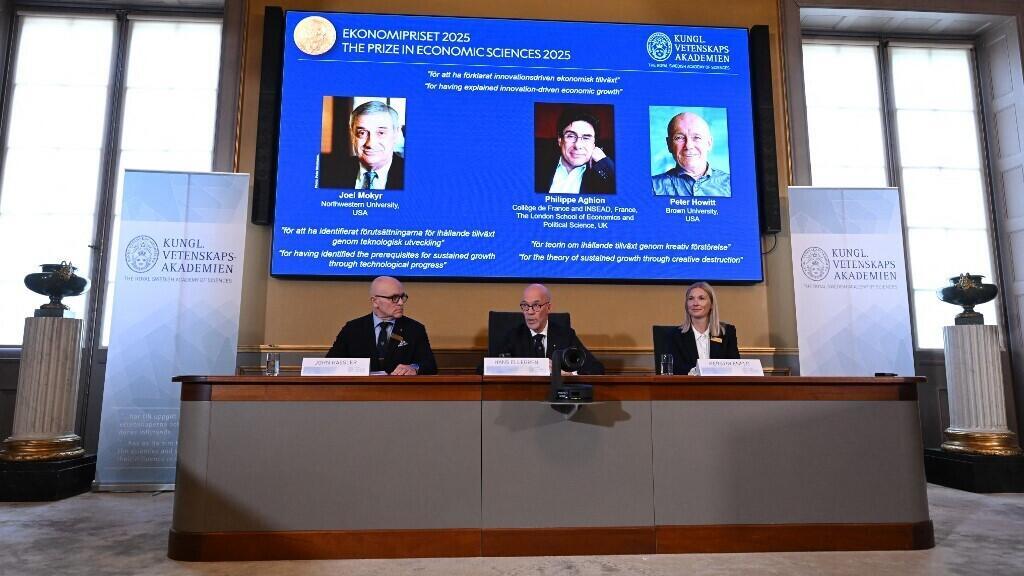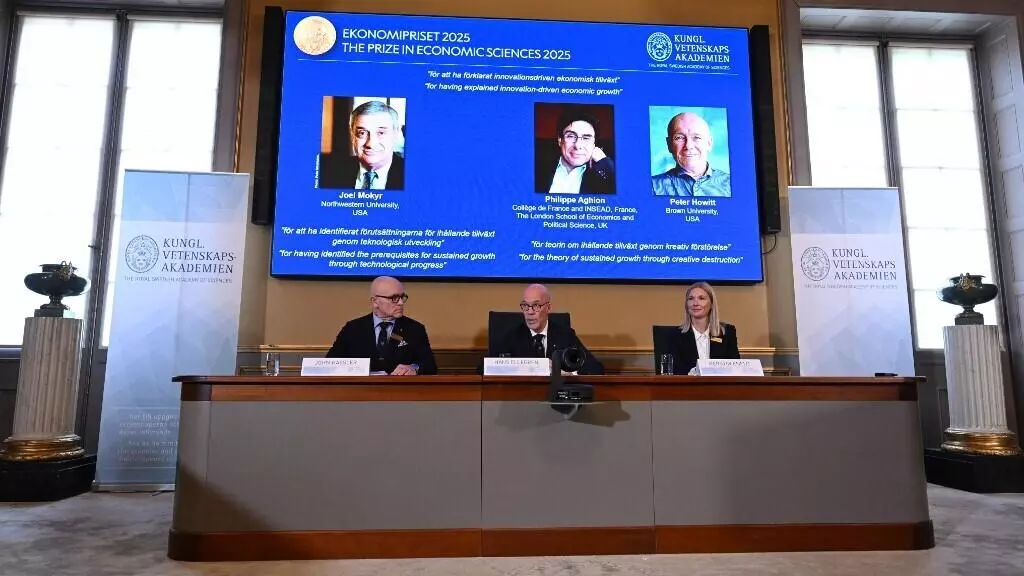In Stockholm, the Sveriges Riksbank Prize in Economic Sciences, commonly referred to as the “Nobel” Prize in Economics, has just been awarded. It was given to Israeli-American Joel Mokyr, Frenchman Philippe Aghion, and Canadian Peter Howitt for their work explaining “economic growth driven by innovation.”

Half of this Nobel Prize in Economics is awarded to Joel Mokyr, 79, “for identifying the preconditions for sustainable growth through technological progress,” and the other half jointly to Philippe Aghion, 69, and Peter Howitt, 79, “for their theory of sustainable growth through creative destruction.”
Joel Mokyr, who teaches at Northwestern University, “has used historical sources as a means to discover the causes of sustained growth, which has become the new norm,” the jury noted in a statement.
Philippe Aghion and Peter Howitt jointly examined the concept of “creative destruction,” which refers to how companies selling established products suffer from the introduction of a new and better product to the market. “This process is creative because it is based on innovation, but it is also destructive because older products become obsolete and lose their commercial value,” the jury wrote.
“Do not take progress for granted”
“The work of the laureates reminds us that we must not take progress for granted. On the contrary, society must remain attentive to the factors that generate and support economic growth. These factors are scientific innovation, creative destruction, and a society open to change,” said a member of the Nobel committee when presenting the prize.
Right after the announcement, one of the co-winners of the Nobel Prize in Economics, Frenchman Philippe Aghion, called on European countries not to let China and the United States monopolize technological innovation: “I think European countries must realize that we must no longer let the United States and China become the technological leaders and lose out to them,” he stated.
Europe must innovate
“After a period of Europe catching up to the United States in terms of GDP per capita between World War II and the mid-1980s,” the gap has widened again, the French economist explained. “The main reason is that we have failed to implement major technological innovations. We remained confined to average technological advances because we lack the appropriate policies and institutions to innovate in the field of high technology,” he added.
The winners receive a check for 11 million Swedish kronor (one million euros) to share.
